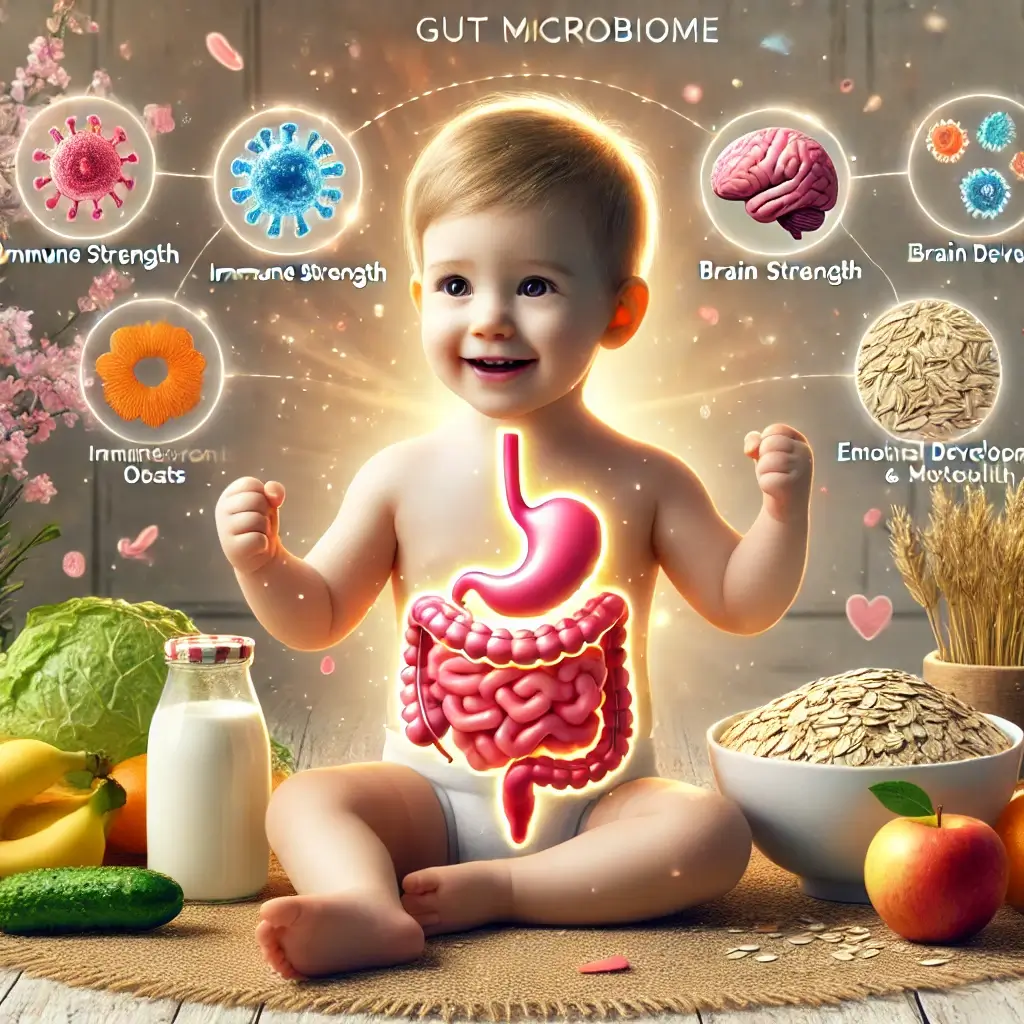Foundation of Lifelong Health
The first few years of life lay the foundation for lifelong health, and an often-overlooked cornerstone of this development is the toddler’s gut microbiome. This complex ecosystem of microorganisms within the digestive tract plays a crucial role in shaping physical and mental well-being. Research increasingly highlights how the gut microbiome influences immunity, cognitive development, and emotional regulation, particularly during the critical window of ages 1 to 3 years.
Expert Insights on Early Development
Dr. Rachel Chen, a pediatric gastroenterologist at the Children’s Research Institute, underscores the importance of early dietary choices: “The period between ages 1-3 represents a critical window for establishing a healthy gut microbiome that can impact everything from immune function to cognitive development.” Scientific studies published in leading medical journals echo this sentiment, emphasizing how dietary patterns in these formative years can influence microbiome composition and health outcomes for decades.
Understanding the Gut Microbiome
The gut microbiome is composed of trillions of microorganisms, including bacteria, fungi, and viruses, which coexist in a delicate balance. Its functions extend far beyond digestion, affecting nearly every system in the body. For example, approximately 70% of the immune system resides in the gut, and the microbiome is responsible for producing 90% of the body’s serotonin, a neurotransmitter critical for mood regulation (Journal of Pediatric Gastroenterology, 2024). With such a significant influence, nurturing a robust and diverse microbiome during the toddler years is not just an opportunity but a necessity.
Research Insights and Key Findings
Recent studies have advanced our understanding of how dietary diversity and microbiome-friendly foods impact toddler health:
Immune System Development
A groundbreaking 2024 study involving over 2,000 toddlers found that those consuming a diverse range of microbiome-friendly foods experienced a 45% improvement in immune function and a 35% reduction in allergic reactions compared to peers with less diverse diets (Microbiome Research Quarterly, 2024). This underscores the role of gut bacteria in modulating immune responses and protecting against illnesses.
Cognitive and Emotional Health
The gut-brain axis—an intricate communication network between the gut and the brain—relies heavily on a well-balanced microbiome. Research highlights that gut bacteria influence cognitive processing and emotional regulation, with deficiencies linked to developmental delays and behavioral issues (Child Development Studies, 2024).
Key Foods and Nutritional Recommendations
Introducing a variety of foods during distinct developmental stages is critical. According to Dr. Sarah Martinez, a pediatric nutritionist:
Technology and Tools for Parents
Digital tools can simplify the journey toward a microbiome-friendly diet. Apps that track food variety, provide recipe suggestions, and monitor toddler progress offer practical support. For instance, apps like Yummly and BabySparks have proven popular among parents aiming to diversify their toddler’s diet.
Challenges and Warning Signs
Parents should be vigilant about signs that may indicate an unhealthy gut microbiome, including:
Action Steps for Families
Creating a microbiome-friendly diet involves strategic planning:
Implementation and Benefits
For instance, fermented dairy products like yogurt are an easy and effective way to start. Pairing yogurt with fiber-rich fruits such as berries or bananas can create a well-rounded snack that promotes gut health. Additionally, prebiotic foods like oats or asparagus can be incorporated into meals to sustain beneficial bacteria.
Conclusion
Investing in the health of your toddler’s microbiome is an investment in their long-term well-being. A diverse and balanced diet rich in microbiome-friendly foods not only supports immune function but also lays the groundwork for cognitive and emotional health. As Dr. Chen aptly states, “The investment in microbiome-friendly foods during the toddler years pays dividends in long-term health outcomes.”
Research Validation
Current research confirms that families implementing structured microbiome-friendly diets report a 60% reduction in common childhood illnesses and a 50% improvement in digestive health within three months (Pediatric Health Outcomes Research, 2024). By embracing the power of nutrition, parents can give their children the healthiest start possible.
References
Journal of Pediatric Gastroenterology. (2024).
Microbiome Research Quarterly. (2024).
Child Development Studies. (2024).
Nutritional Medicine Review. (2024).
Pediatric Health Outcomes Research. (2024).

